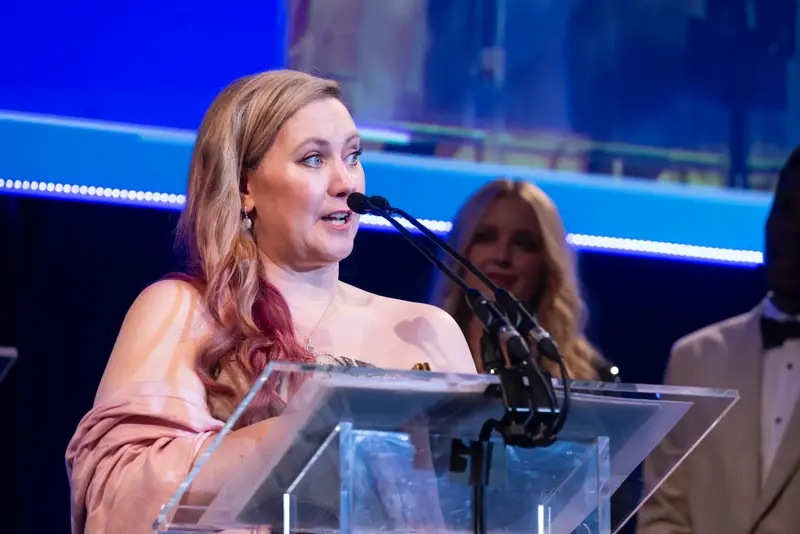You are viewing your 1 free article this month. Login to read more articles.
HarperCollins UK gender pay gap falls slightly to 15.3%
The mean gender pay gap at HarperCollins UK in 2020 narrowed slightly from 2019's figure to 15.3%, with more women joining the company's higher paid roles, the publisher's latest report shows.
Figures released by HC three months ahead of the mandatory April deadline showed the mean average pay difference between men and women for 2020 was down by 1% on 2019. The median gap - the figure that falls in the middle of all employees' salaries from lowest to highest paid - was static at 8.8%.
The median bonus gap, however, increased from 15.9% to 26.7%, although the mean was down slightly from 51.3% to 49.4%. Figures show 81% of female employees received a bonus compared to 88% of males, although the publisher stressed all its staff were in a bonus scheme with payouts dependent on start dates.
HarperCollins, which has now announced plans to publish an ethnicity pay gap study alongside its next gender report, said its figures were down to the shape of its workforce and that it was working towards closing the gap.
Women make up the majority of each pay quartile including its gender-balanced board. However, because there are more men in the upper quartile than at other levels, and a higher proportion of women in the lowest, the overall gender pay gap remains wide. The bonus gap was also impacted by the 19% of women who work part-time compared to just 3% of men, including senior roles.
Director of people John Athanasiou said part of the solution was attracting more men to the lower pay quartiles as part of creating a more diverse workforce. He said: “There are challenges there for our industry because it is a female-dominated sector. If you want to shift your gender pay gaps you really need to think about how you hire in to the lower to lower-mid level as well and be representative across the whole organisation.”
The report, which uses snapshot data from 5th April 2020, showed women made up 66.3% of the workforce. The percentage of women in the upper pay quartile increased from 58% to 61%. Women made up 64% of the upper middle and 66% of the lower middle quartile. Female staff made up 75% of the lowest paid bracket, up from 64% the year before, partly due to distribution workers moving out of the quartile because of extra payments in response to Covid-19.
Athanasiou said the increase in the upper quartile was a “significant change”, adding: “From that perspective it's working. I suppose the challenges is how do you hire talent into the junior and mid-level roles where most of the sector does get 70%-80% female applications for roles?”
The latest report is HarperCollins' fourth since it began publishing the reports in 2017 and shows the median gap has fallen 1.6% from 10.4% at that time while the mean is down 0.8% from 16.1%. That shows a slow trajectory but Athanasiou insisted people should look at the firm's strategy as well as the data and reasons behind it.
He said: “Our ultimate goal is to be as close to zero as possible, like most companies would be wanting. But my personal view is stats are stats and there are lots of things that can throw these stats. The thing I think we should be focused on is how inclusive is an organisation and really how do your hold your organisation to account for [diversity and inclusion] and what are they doing strategically to change it, to make it an inclusive culture where anyone from any background and identity can reach success and thrive to their potential and that is fundamentally key. Plus, obviously, looking at the data. Of course we'd want it to improve and be as low as possible but you can have a stat and then the culture doesn't line up with being truly inclusive.”
Changes on the way include an improvement to maternity pay for the third year running, with HarperCollins now giving 20 weeks’ full pay after only one year’s service, including shared parental and adoption matching.
Parenting group iReturn is becoming a fully fledged network while new employees will no longer have to wait a statutory six months before making a flexible working request.
The firm said it would also focus on raising lower salaries and entry-level pay, which is now at £24,250. Leadership and management programme Step Forward will run again and the company has announced a sponsorship programme called GROW, where executive board members and other senior directors champion early-career talent for six months, and has 92% women taking part.
Athanasiou said: “D&I is part of our DNA here. We're not in it for tickboxing. We believe in it, it's part of our purpose its our responsibility to do this, not just because it's the right thing to do, it's because we should be doing it and it's fundamental in running a business.”
This week, the firm revealed its new diversity, inclusion and belonging manager Maheen Choonara, and Athanasiou said among her roles would be helping get the completion level of the company's first ethnicity pay gap survey.
He said: “It's a really big move for us and the point of doing it is to continue to shine a spotlight on race diversity. I'm a big believer in what gets measured gets done. So we should be doing it, we want to do it and our staff want us to.”
















